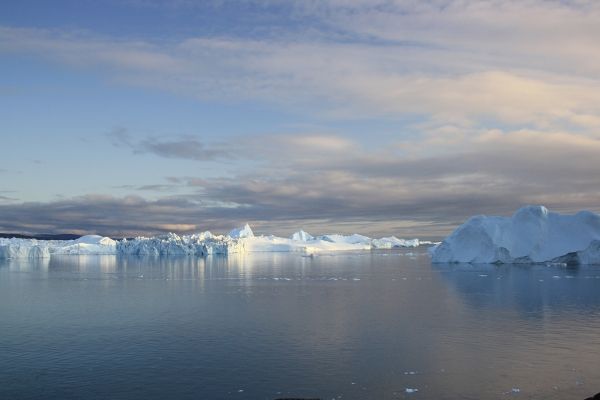The Greenland Ice Sheet recorded a new record loss of mass in 2019. This was the finding of a team of international researchers after evaluating data from satellite observations and modelling data. The total loss amounted to 532 billion metric tons, more than in the previous record year 2012 (464 billion metric tons), which equates to an average global sea-level rise of 1.5 mm. After two years characterised by low loss of mass in 2017 and 2018, the ice sheet is now heading toward increasing mass losses. The five years with the greatest losses all occurred in the last decade. The ice loss in 2019 exceeded the increase due to snowfall by over 80%. The study was published today in the journal Communications Earth & Environment.
In order to determine the ice loss, researchers from the Alfred Wegener Institute, Helmholtz Centre for Polar and Marine Research (AWI), the German Research Centre for Geosciences GFZ and international partners evaluated satellite data from the GRACE mission, and its successor mission, GRACE Follow-On (GRACE-FO). The satellites provided highly accurate measurements, which were used to create monthly maps of Earth’s gravity. The redistribution of the masses, e.g. ice losses in the oceans, leads to temporal and spatial changes in Earth’s gravitational forces. The researchers compared the satellite data with regional climate models that are specially designed to calculate the snowfall and the melting of the ice sheet.
“After a two-year ‘breather’, in 2019 the mass loss increased steeply and exceeded all annual losses since 1948, and probably for more than 100 years,” says Ingo Sasgen, a glaciologist at the AWI in Bremerhaven and first author of the study. “There are increasingly frequent, stable high-pressure areas over the ice sheet, which promote the influx of warm air from the middle latitudes. We saw a similar pattern in the previous record year 2012.”
Read more at GFZ German Research Centre for Geosciences
Image: Icebergs from Jakobshavn Isbræ, Ilulissat Icefjord, West Greenland. CREDIT: Ingo Sasgen


